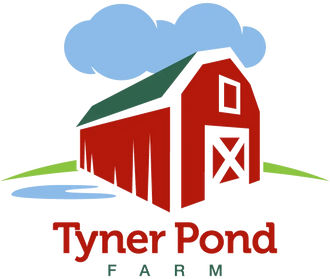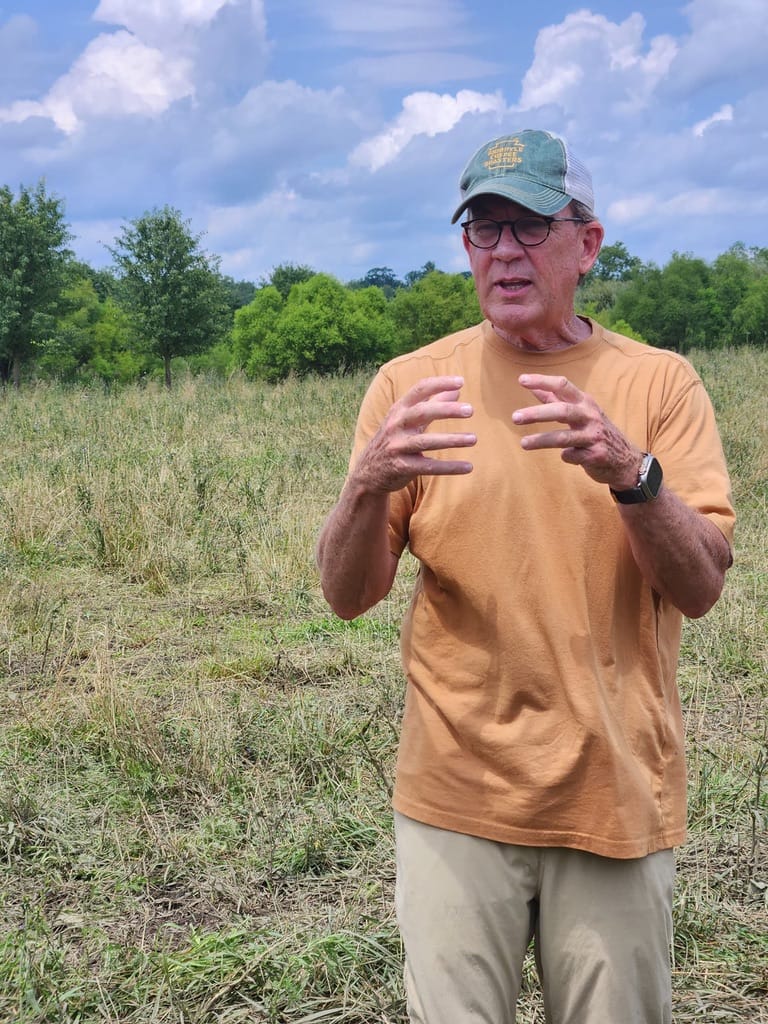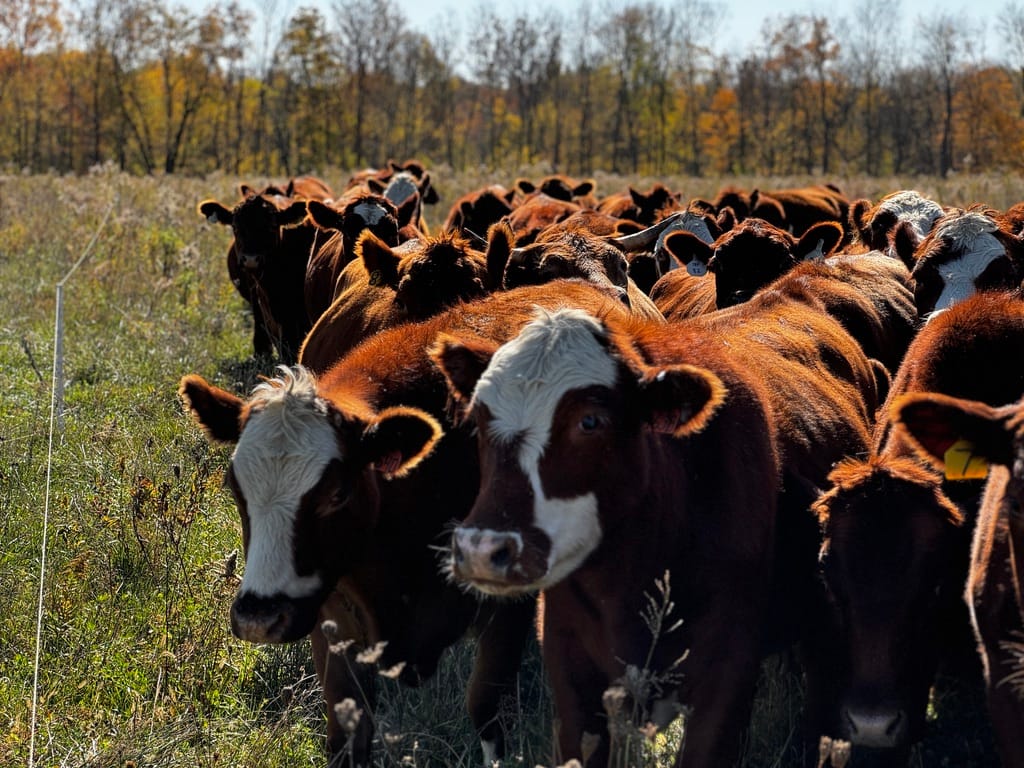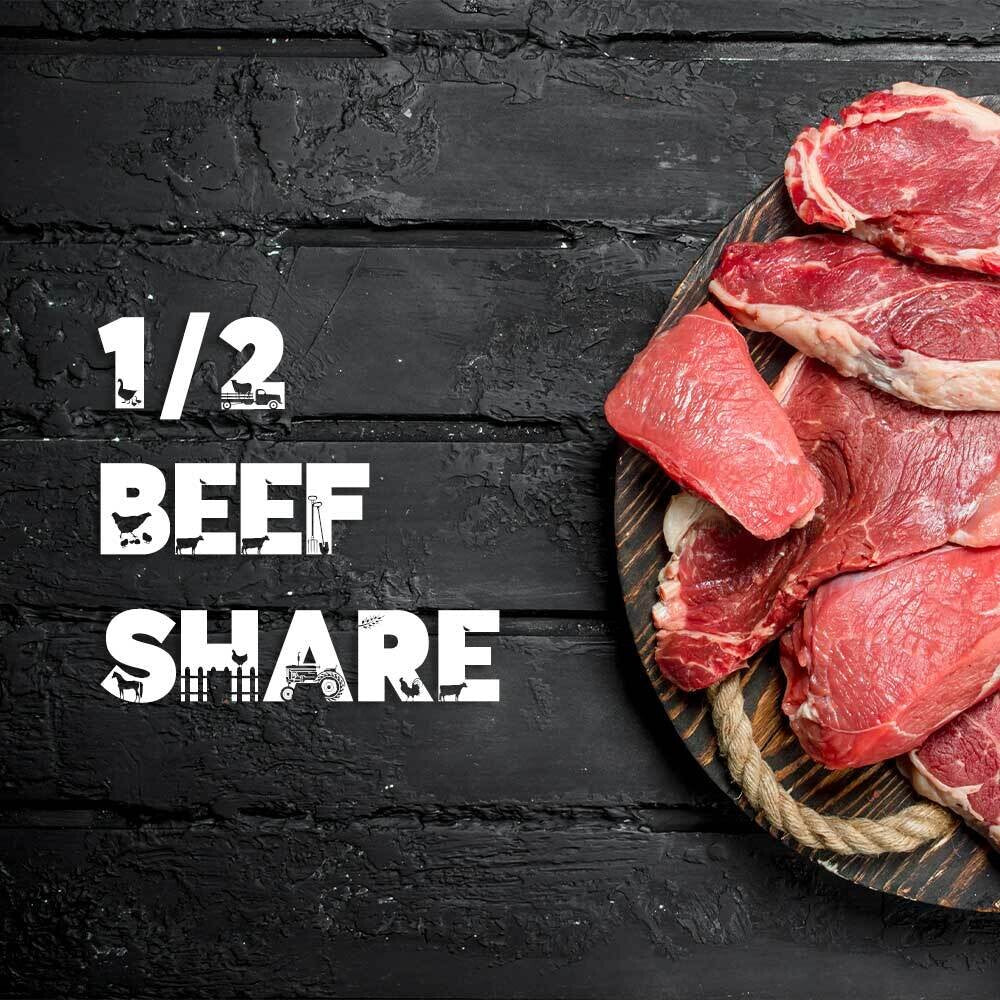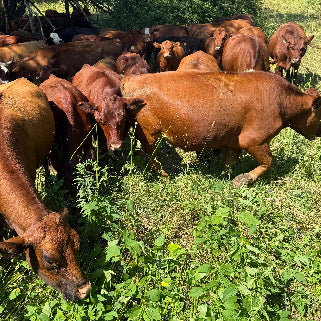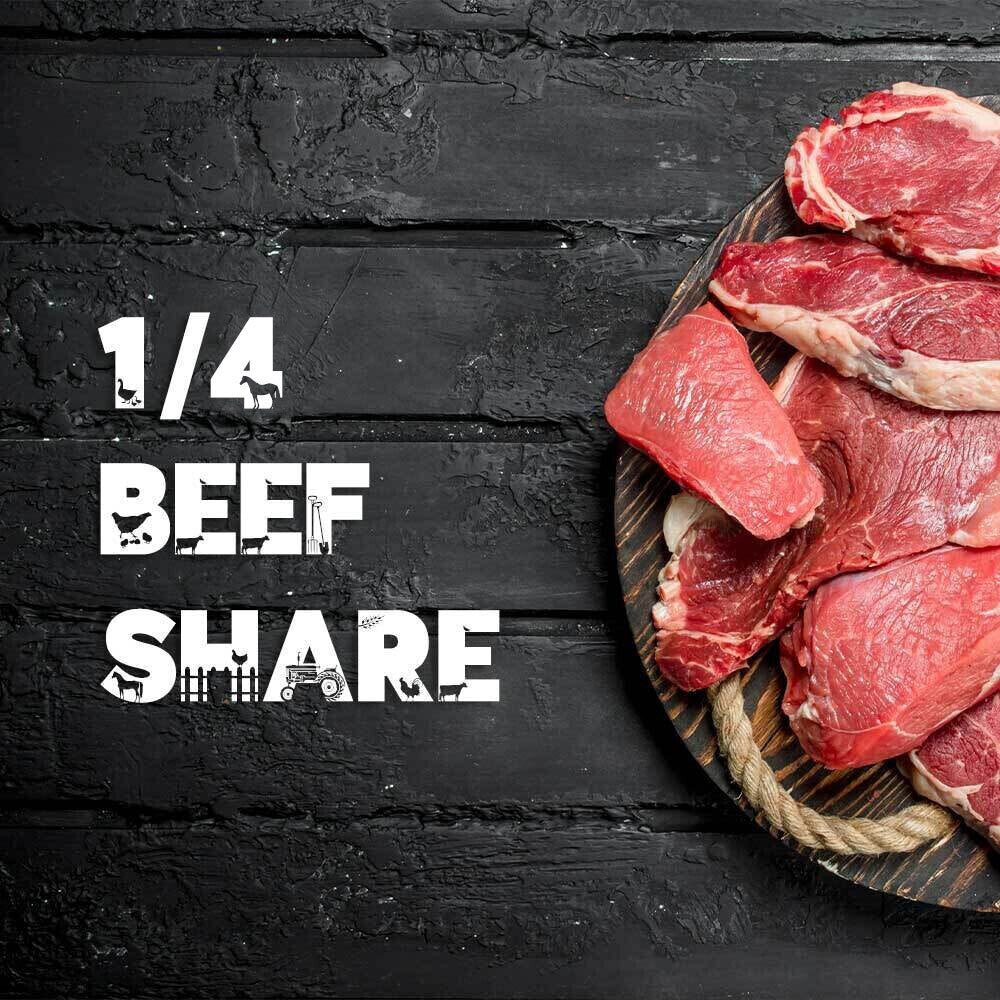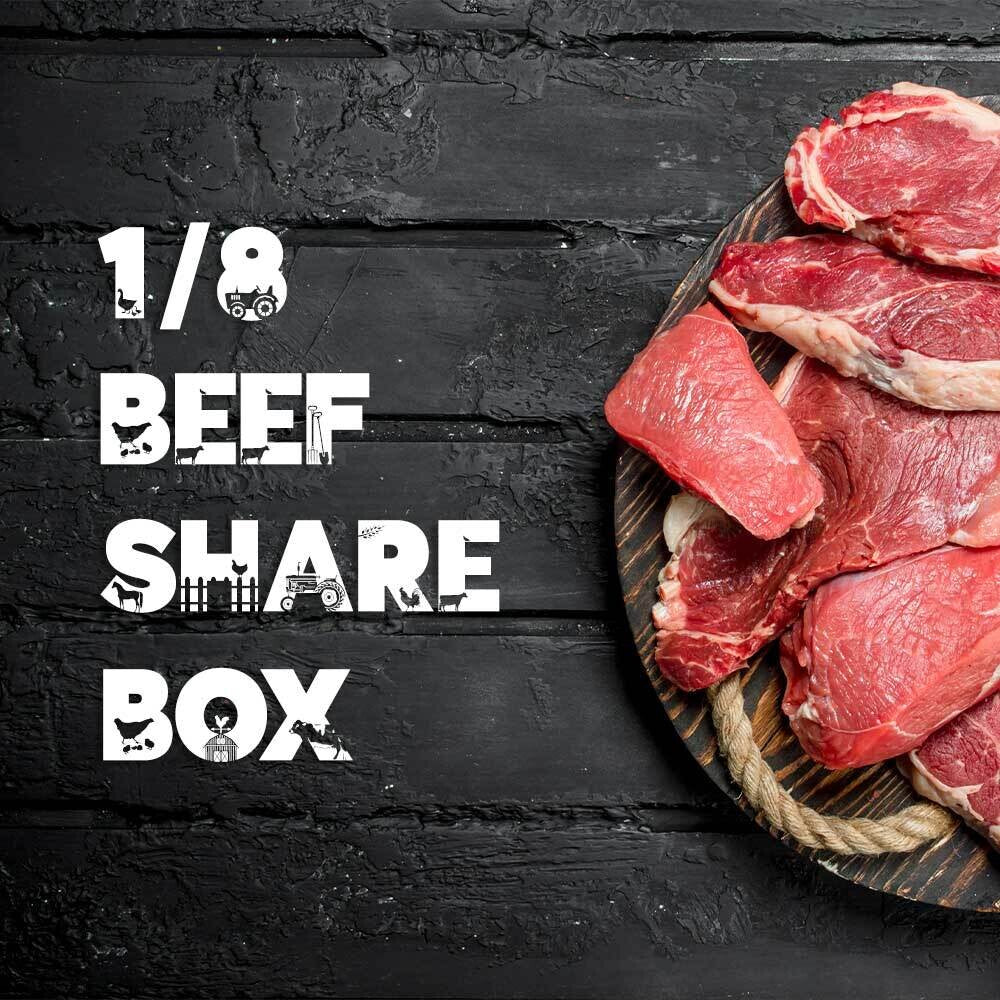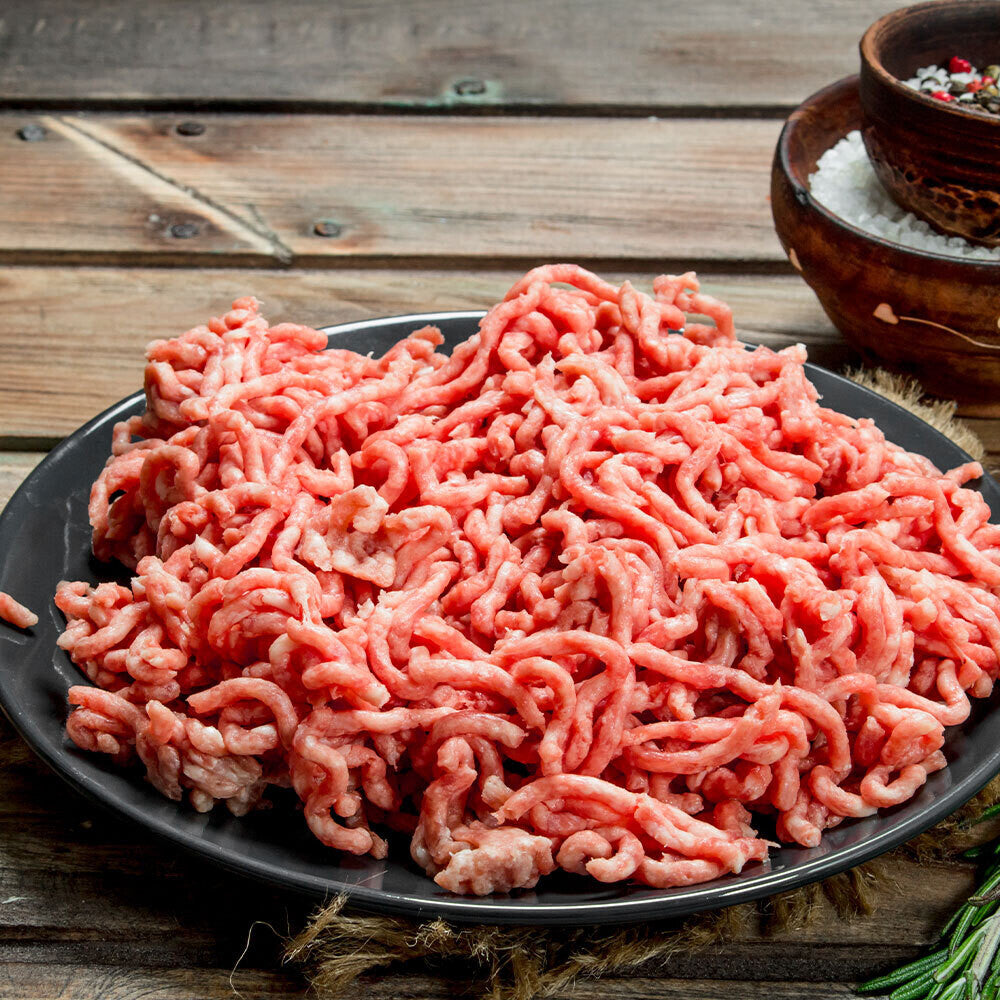
The Importance of Grass Fed Beef Without Antibiotics for Soil Microbes and Carbon Sequestration
The use of antibiotics in Grass fed beef can have negative impacts on both the environment and human health.
There has been a lot published regarding how the use of antibiotics in cattle can contribute to the emergence of antibiotic-resistant bacteria, which can spread to humans and other animals through contaminated food, water, or direct contact. Here we are going to explain the damage antibiotics in animals can have on soil health..
In particular, antibiotics harm the soil microbes that are critical to the underground function of plant health and soil carbon levels.
 Antibiotic Free Grass Fed Beef
Soil carbon is a critical component for microbial life because it serves as a source of energy and nutrients for microorganisms that reside in the soil. Microbes, such as bacteria and fungi, break down organic matter in the soil to obtain carbon, which they use as a building block for their own cells.
In addition to serving as a food source, soil carbon is also important for maintaining the structure and stability of soil. It helps to bind soil particles together, which improves soil structure and prevents erosion. Soil carbon also helps to retain water in the soil, which is crucial for microbial life as well as plant growth.
Microbial communities are responsible for many important soil processes, such as nutrient cycling, decomposition, and the formation of soil aggregates. Without soil carbon, these processes would be severely impacted, which could have far-reaching consequences for the health of soil ecosystems.
Moreover, soil carbon sequestration is also important as a carbon sink. Carbon stored in soil helps to reduce the amount of carbon dioxide in the atmosphere.
Soil microorganisms play a critical role in this process by breaking down organic matter and transforming it into stable forms of soil carbon that can persist for many years.
In summary, soil carbon is crucial for the survival and function of microbial life in soil ecosystems. It serves as a source of energy and nutrients, helps to maintain soil structure and stability, and is a key component in important soil processes.
Grass fed cattle that are not given antibiotics are allowed to graze freely on pastures, which promotes biodiversity and soil health. These cattle play an important role in enhancing soil carbon storage through their grazing activities, as they help to stimulate the growth of beneficial microbes that sequester carbon underground. These microbes help to build the soil's organic matter, which enhances its ability to store carbon and other nutrients.
When grass fed cattle are given antibiotics, it can harm the soil microbes that are critical to soil health and carbon sequestration. According to The National Institute of Health, “Animals discharge in their feces and urine between 70%–90% of the antibiotic administered unchanged or in active metabolites.” The antibiotics are released into the soil and alter the microbial communities in soil in ways that are detrimental to carbon formation and sequestration.
Antibiotics can kill off beneficial soil microbes, which reduces the soil's ability to store carbon and other nutrients.
It's important to consider the impact of antibiotics on soil health and carbon sequestration when making choices about food production and consumption.
Supporting grass fed beef production without the use of antibiotics can help promote a healthier environment and enhance soil carbon storage. By choosing meat from grass fed cattle that are not given antibiotics, you can ensure that your food is produced in a sustainable and responsible manner, and support the critical role that soil microbes play in carbon sequestration.
If it's not obvious in this post, Tyner Pond Farm uses no antibiotics in our Grass Fed Beef.
Antibiotic Free Grass Fed Beef
Soil carbon is a critical component for microbial life because it serves as a source of energy and nutrients for microorganisms that reside in the soil. Microbes, such as bacteria and fungi, break down organic matter in the soil to obtain carbon, which they use as a building block for their own cells.
In addition to serving as a food source, soil carbon is also important for maintaining the structure and stability of soil. It helps to bind soil particles together, which improves soil structure and prevents erosion. Soil carbon also helps to retain water in the soil, which is crucial for microbial life as well as plant growth.
Microbial communities are responsible for many important soil processes, such as nutrient cycling, decomposition, and the formation of soil aggregates. Without soil carbon, these processes would be severely impacted, which could have far-reaching consequences for the health of soil ecosystems.
Moreover, soil carbon sequestration is also important as a carbon sink. Carbon stored in soil helps to reduce the amount of carbon dioxide in the atmosphere.
Soil microorganisms play a critical role in this process by breaking down organic matter and transforming it into stable forms of soil carbon that can persist for many years.
In summary, soil carbon is crucial for the survival and function of microbial life in soil ecosystems. It serves as a source of energy and nutrients, helps to maintain soil structure and stability, and is a key component in important soil processes.
Grass fed cattle that are not given antibiotics are allowed to graze freely on pastures, which promotes biodiversity and soil health. These cattle play an important role in enhancing soil carbon storage through their grazing activities, as they help to stimulate the growth of beneficial microbes that sequester carbon underground. These microbes help to build the soil's organic matter, which enhances its ability to store carbon and other nutrients.
When grass fed cattle are given antibiotics, it can harm the soil microbes that are critical to soil health and carbon sequestration. According to The National Institute of Health, “Animals discharge in their feces and urine between 70%–90% of the antibiotic administered unchanged or in active metabolites.” The antibiotics are released into the soil and alter the microbial communities in soil in ways that are detrimental to carbon formation and sequestration.
Antibiotics can kill off beneficial soil microbes, which reduces the soil's ability to store carbon and other nutrients.
It's important to consider the impact of antibiotics on soil health and carbon sequestration when making choices about food production and consumption.
Supporting grass fed beef production without the use of antibiotics can help promote a healthier environment and enhance soil carbon storage. By choosing meat from grass fed cattle that are not given antibiotics, you can ensure that your food is produced in a sustainable and responsible manner, and support the critical role that soil microbes play in carbon sequestration.
If it's not obvious in this post, Tyner Pond Farm uses no antibiotics in our Grass Fed Beef.
Why Soil Carbon is Crucial for Healthy Soil Ecosystems
 Antibiotic Free Grass Fed Beef
Soil carbon is a critical component for microbial life because it serves as a source of energy and nutrients for microorganisms that reside in the soil. Microbes, such as bacteria and fungi, break down organic matter in the soil to obtain carbon, which they use as a building block for their own cells.
In addition to serving as a food source, soil carbon is also important for maintaining the structure and stability of soil. It helps to bind soil particles together, which improves soil structure and prevents erosion. Soil carbon also helps to retain water in the soil, which is crucial for microbial life as well as plant growth.
Microbial communities are responsible for many important soil processes, such as nutrient cycling, decomposition, and the formation of soil aggregates. Without soil carbon, these processes would be severely impacted, which could have far-reaching consequences for the health of soil ecosystems.
Moreover, soil carbon sequestration is also important as a carbon sink. Carbon stored in soil helps to reduce the amount of carbon dioxide in the atmosphere.
Soil microorganisms play a critical role in this process by breaking down organic matter and transforming it into stable forms of soil carbon that can persist for many years.
In summary, soil carbon is crucial for the survival and function of microbial life in soil ecosystems. It serves as a source of energy and nutrients, helps to maintain soil structure and stability, and is a key component in important soil processes.
Grass fed cattle that are not given antibiotics are allowed to graze freely on pastures, which promotes biodiversity and soil health. These cattle play an important role in enhancing soil carbon storage through their grazing activities, as they help to stimulate the growth of beneficial microbes that sequester carbon underground. These microbes help to build the soil's organic matter, which enhances its ability to store carbon and other nutrients.
When grass fed cattle are given antibiotics, it can harm the soil microbes that are critical to soil health and carbon sequestration. According to The National Institute of Health, “Animals discharge in their feces and urine between 70%–90% of the antibiotic administered unchanged or in active metabolites.” The antibiotics are released into the soil and alter the microbial communities in soil in ways that are detrimental to carbon formation and sequestration.
Antibiotics can kill off beneficial soil microbes, which reduces the soil's ability to store carbon and other nutrients.
It's important to consider the impact of antibiotics on soil health and carbon sequestration when making choices about food production and consumption.
Supporting grass fed beef production without the use of antibiotics can help promote a healthier environment and enhance soil carbon storage. By choosing meat from grass fed cattle that are not given antibiotics, you can ensure that your food is produced in a sustainable and responsible manner, and support the critical role that soil microbes play in carbon sequestration.
If it's not obvious in this post, Tyner Pond Farm uses no antibiotics in our Grass Fed Beef.
Antibiotic Free Grass Fed Beef
Soil carbon is a critical component for microbial life because it serves as a source of energy and nutrients for microorganisms that reside in the soil. Microbes, such as bacteria and fungi, break down organic matter in the soil to obtain carbon, which they use as a building block for their own cells.
In addition to serving as a food source, soil carbon is also important for maintaining the structure and stability of soil. It helps to bind soil particles together, which improves soil structure and prevents erosion. Soil carbon also helps to retain water in the soil, which is crucial for microbial life as well as plant growth.
Microbial communities are responsible for many important soil processes, such as nutrient cycling, decomposition, and the formation of soil aggregates. Without soil carbon, these processes would be severely impacted, which could have far-reaching consequences for the health of soil ecosystems.
Moreover, soil carbon sequestration is also important as a carbon sink. Carbon stored in soil helps to reduce the amount of carbon dioxide in the atmosphere.
Soil microorganisms play a critical role in this process by breaking down organic matter and transforming it into stable forms of soil carbon that can persist for many years.
In summary, soil carbon is crucial for the survival and function of microbial life in soil ecosystems. It serves as a source of energy and nutrients, helps to maintain soil structure and stability, and is a key component in important soil processes.
Grass fed cattle that are not given antibiotics are allowed to graze freely on pastures, which promotes biodiversity and soil health. These cattle play an important role in enhancing soil carbon storage through their grazing activities, as they help to stimulate the growth of beneficial microbes that sequester carbon underground. These microbes help to build the soil's organic matter, which enhances its ability to store carbon and other nutrients.
When grass fed cattle are given antibiotics, it can harm the soil microbes that are critical to soil health and carbon sequestration. According to The National Institute of Health, “Animals discharge in their feces and urine between 70%–90% of the antibiotic administered unchanged or in active metabolites.” The antibiotics are released into the soil and alter the microbial communities in soil in ways that are detrimental to carbon formation and sequestration.
Antibiotics can kill off beneficial soil microbes, which reduces the soil's ability to store carbon and other nutrients.
It's important to consider the impact of antibiotics on soil health and carbon sequestration when making choices about food production and consumption.
Supporting grass fed beef production without the use of antibiotics can help promote a healthier environment and enhance soil carbon storage. By choosing meat from grass fed cattle that are not given antibiotics, you can ensure that your food is produced in a sustainable and responsible manner, and support the critical role that soil microbes play in carbon sequestration.
If it's not obvious in this post, Tyner Pond Farm uses no antibiotics in our Grass Fed Beef.
Tags:
Previous post
The 5 Principles for Regenerative Grass Fed Beef Management
Next post
